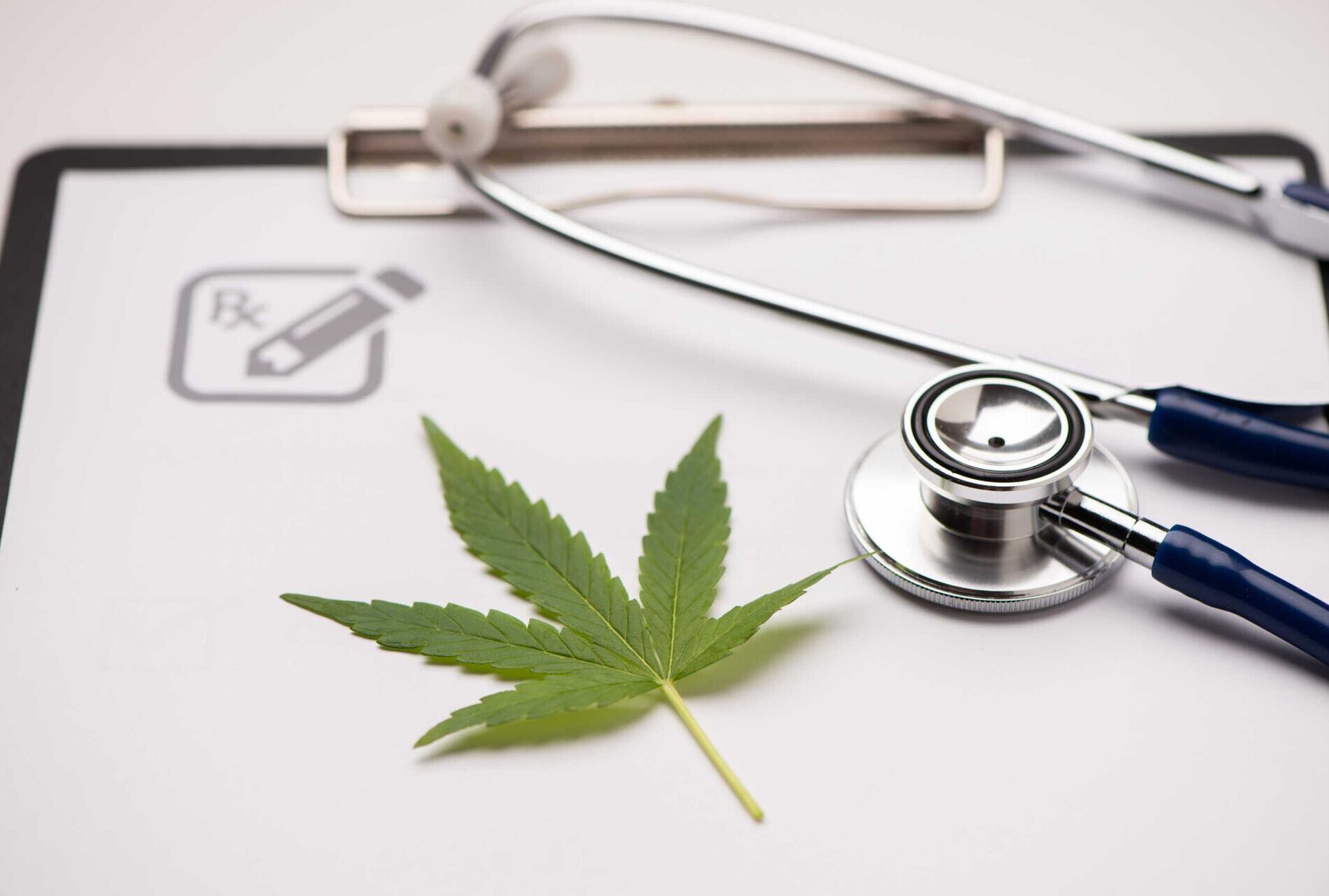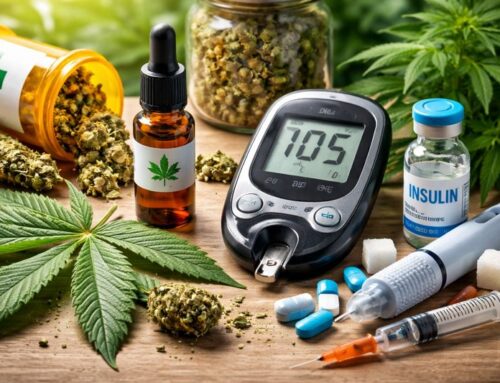Chronic pain represents a pervasive concern in contemporary society; opioids have long been regarded as the primary method for alleviating severe discomfort. However, a substantial portion of individuals confront pain that does not adequately respond to opioid treatment, thereby leaving them in considerable distress without viable relief. Furthermore, medical cannabis for opioid-resistant pain is emerging as a viable opioid alternative for pain management, offering hope to individuals seeking effective relief from chronic discomfort.
Additionally, the prolonged use of opioids entails the possibility of addiction, overdose, and various detrimental side effects, which renders this option less appealing for numerous patients. In light of these obstacles, medical marijuana has surfaced as a potential alternative for addressing pain resistant to opioids. This article aims to delve into the viability of Opioid alternative for pain management and medical marijuana in treating pain that opioids cannot mitigate, illuminating its benefits, risks, and the findings of current research.
The Opioid Crisis and Its Impact on Pain Management
Opioids—such as morphine, oxycodone, and fentanyl—are commonly employed to alleviate moderate to severe pain. However, while they can be highly effective in the short term, these medications carry numerous risks, including addiction, overdose, and dependency. The opioid crisis has been highlighted because many individuals become reliant on opioids after prolonged use, often due to chronic conditions like back pain, arthritis, or nerve injuries. Although some patients find that opioids do not provide adequate relief, they continue to seek alternative pain management solutions. With millions of individuals enduring chronic pain and many more resorting to opioids for relief, the urgency for safer, non-addictive alternatives has never been greater.
The Role of Medical Marijuana in Pain Management
Medical marijuana has gained significant attention in recent years as a potential treatment for various health issues, including chronic pain. Unlike opioids, marijuana does not lead to the same level of dependency or overdose risk. The active compounds in marijuana, particularly cannabinoids like THC (tetrahydrocannabinol) and CBD (cannabidiol), have been shown to interact with the body’s endocannabinoid system to alleviate pain, reduce inflammation, and improve mood. THC has psychoactive properties that can provide immediate pain relief, while CBD is non-psychoactive and can contribute to long-term pain management without causing a “high.” As a result, medical marijuana for opioid-resistant pain naturally offers a safer, non-addictive alternative for those seeking effective pain relief.
Research has shown that marijuana can be effective for different types of pain, including neuropathic pain (from nerve damage), inflammatory pain, and pain from conditions like multiple sclerosis, fibromyalgia, and rheumatoid arthritis. As a result, medical marijuana is increasingly being considered a viable option for individuals whose pain does not respond well to opioids.
How Opioid alternative for pain management works?
The human body possesses an endocannabinoid system (ECS) that plays a crucial role in regulating various physiological processes, such as pain perception, mood, and immune response. The ECS comprises receptors (CB1 and CB2) activated by cannabinoids. When individuals consume marijuana, the cannabinoids attach to these receptors, thus influencing the body’s experience of pain and inflammation.
THC (tetrahydrocannabinol) serves as the primary psychoactive ingredient in marijuana. It primarily binds to the CB1 receptors located in the brain, which are integral to mood, memory, and pain regulation. Because THC can effectively alleviate pain and promote relaxation, it proves particularly beneficial for those enduring severe (or acute) pain. However, it is essential to consider the potential effects and legal implications surrounding its use. Although many find relief, others may experience adverse reactions. This complexity underscores the need for careful evaluation and understanding of marijuana’s impact on individual health.
CBD (cannabidiol), conversely, does not produce psychoactive effects; however, it engages with both CB1 and CB2 receptors. Research indicates that it can diminish inflammation, bolster immune function, and alleviate chronic pain without inducing the “high” linked to THC. This property makes CBD particularly advantageous for those who need pain relief over extended durations because it offers a more gradual and sustained impact.
Through the modulation of these receptors, marijuana can alter the body’s pain processing mechanisms, thus aiding in the relief of discomfort and enhancing the quality of life for individuals grappling with pain resistant to opioids.
Potential Risks and Considerations
While medical marijuana holds promise as an alternative to opioids, it is not without its risks. The most common side effects of marijuana use include dizziness, fatigue, dry mouth, and changes in appetite. Additionally, the psychoactive effects of THC may not be suitable for all patients, especially those who need to remain alert, such as drivers or individuals with certain jobs.
There is also the concern of cannabis use leading to dependency, though it is generally considered to be less addictive than opioids. However, individuals who use marijuana heavily for long periods may develop a psychological dependence. Moreover, marijuana can interact with other medications, so patients must discuss their medical history with their healthcare provider before beginning treatment.
Furthermore, the legal status of medical marijuana varies by location, and in some places, it is still illegal or heavily restricted. This can limit access for patients who might benefit from its use.
Conclusion
Medical marijuana offers a promising alternative for individuals enduring chronic pain that resists opioids. The expanding body of evidence supporting its effectiveness—combined with the risks linked to prolonged opioid use—positions cannabis as a viable option for pain management.
However, although marijuana may provide relief for many, patients must collaborate closely with their healthcare providers to guarantee safe and effective treatment. As research progresses, we may witness an increased understanding and acceptance of medical marijuana as a vital tool in combating pain; this offers new hope to those who have struggled to achieve relief through conventional methods.
FAQ
How does medical marijuana help with opioid-resistant pain?
Medical marijuana, especially cannabinoids like THC and CBD, works with the body’s endocannabinoid system. It can help ease pain, lower inflammation, and improve mood. It is a good option for people with chronic pain who do not respond well to opioids. Medical marijuana offers pain relief without the risk of addiction or overdose often linked to opioid use. If you want to use these treatments, check for a medical card in Mississippi or Massachusetts to get started.
Is medical marijuana safer than opioids for pain management?
Yes, medical marijuana is usually safer than opioids for managing pain. Unlike opioids, marijuana does not have the same risk of addiction, overdose, or serious side effects. Although marijuana can still cause some side effects, like dizziness or changes in appetite, it is often a safer and non-addictive option for treating pain, especially for people who do not respond well to opioids. You can look for dispensaries nearby or ask about getting a medical marijuana card in Clinton for local access.
What are the potential side effects of using medical marijuana for pain relief?
Common side effects of medical marijuana include dizziness, tiredness, dry mouth, and changes in appetite. If you use THC, it may temporarily affect your coordination and focus. Long-term use may lead to some people developing a reliance on it. If you are considering using CBN for chronic pain or to help with conditions like HIV, talk to your healthcare provider for personalized advice.
Can a felon get a medical marijuana card?
Whether someone with a felony can get a medical marijuana card depends on the laws in their state. Many states do not allow individuals with certain felonies to qualify for a medical marijuana card. It's important to check local laws and talk to a healthcare provider or legal expert about eligibility for a medical card in Mississippi or Massachusetts.
How do I apply for a medical marijuana card near me?
To get a medical marijuana card, first check if you meet your state's requirements. These usually include having a qualifying medical condition. Next, see a licensed healthcare provider for a consultation. After that, you can apply by sending your application to the appropriate state authority. If you live in Clinton or Mississippi, find local dispensaries and their services to help you with the process.
How can I use CBN for pain management?
Cannabinol (CBN) is a substance found in cannabis that may help with relaxation and pain relief. While more studies are needed, some people find CBN useful for managing chronic pain and insomnia. If you want to try CBN or other cannabis products, you may need a medical marijuana card in many states, like Massachusetts or Mississippi.
Can medical marijuana help with HIV treatment?
Yes, medical marijuana can help people with HIV by easing symptoms like chronic pain, nausea, and loss of appetite, which are common with HIV and its treatment. Cannabinoids like THC and CBD can improve the quality of life for those living with HIV. To access cannabis for these symptoms, check with local dispensaries near you or ask about getting a medical marijuana card in Clinton.





